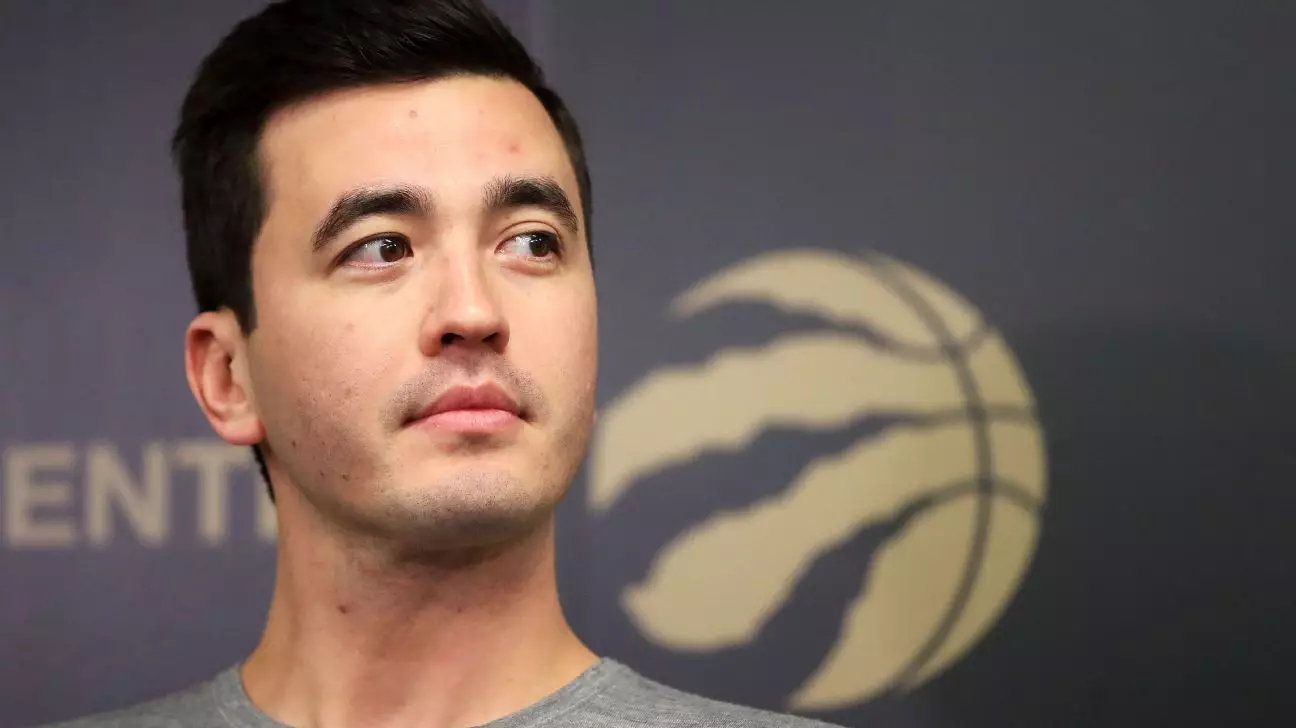The Toronto Raptors are making a bold move by elevating Bobby Webster to the role of head of basketball operations, signaling a strategic shift aimed at continuity and long-term planning. This decision comes in the wake of the departure of Masai Ujiri, a monumental figure who transformed the franchise into an NBA contender. While some may view the transition as a loss of legendary leadership, Raptors fans and insiders should recognize this as an opportunity to build on the solid foundation Ujiri laid. Webster’s appointment is not merely a replacement but an evolution that aligns with modern NBA dynamics and the team’s aspirations for sustained success.
The Significance of Webster’s Rise Through the Ranks
Bobby Webster’s trajectory within the organization reflects a deep understanding of the Raptors’ culture and the league itself. Joining in 2013, he quickly proved his strategic acumen and adaptability, ascending from assistant roles to the pivotal GM position at just 40 years old. His prior experience with the NBA league office from 2006 to 2013 provided him with invaluable insights into league operations, negotiations, and talent evaluation. This diverse background enhances his ability to navigate complex trades, draft decisions, and team-building strategies. With nearly two decades of NBA experience, Webster is uniquely positioned to craft a vision grounded in analytical rigor combined with a nuanced understanding of player development.
Assessment of the Raptors’ Current State and Future Potential
The recent performance of the Raptors, finishing 30-52 and missing postseason play, has surely prompted introspection and a desire for reinvigoration. Yet, Webster’s appointment indicates confidence that the groundwork for future success remains intact. The team’s core, including young talents like Scottie Barnes, RJ Barrett, and Jakob Poeltl, offers a promising nucleus to build upon. The franchise’s new leadership must now focus on strategic acquisitions, fostering player growth, and instilling a culture that balances competitiveness with resilience. Webster’s demonstrated management style, especially during key moments like the NBA summer league, hints at a methodical approach that could finally harness the team’s potential and propel Toronto back into playoff contention.
Leadership as a Reflection of Organizational Confidence
This appointment underscores the Toronto Raptors’ belief in internal development and continuity. Unlike a league that often favors high-profile external hires, the Raptors have demonstrated faith in a homegrown executive. The relationship between Webster and MLSE CEO Keith Pelley was a critical factor, especially their productive interactions during the summer league, which served as a proving ground for Webster’s leadership philosophy. This decision also signals a commitment to a cohesive organizational vision—one that values institutional knowledge, agility, and a forward-thinking mindset. It remains to be seen how Webster’s tenure will evolve, but the optimism rooted in his familiarity with the team and league could become a catalyst for a new chapter in Raptors history.


Leave a Reply